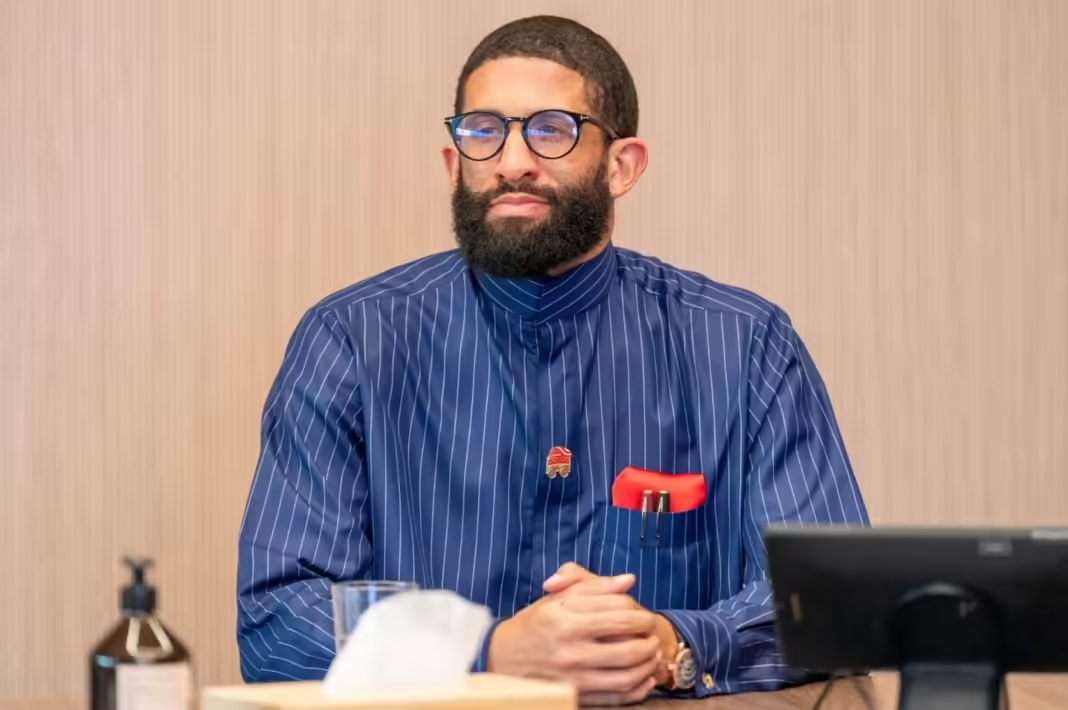Around 26 May 2020, the police in the Democratic Republic of the Congo (DRC) announced that Raphael Yanyi, a senior judge, “had suffered a suspected heart attack” leading to his death. The Ministry of Justice quickly clarified, however, that the remains of the judge “did not exhibit any toxic substances.” Following an autopsy, Justice Minister, Celestin Tunda Ya Kasende, disclosed that Judge Yanyi had died from “blows of sharp points or knife-like objects, which were thrust into his head.”
Contrary to the claim by the police, the judge did not die of a heart attack. Instead he was murdered. At the time of his killing, Raphael Yanyi was presiding over the high profile corruption trial of Vital Kamerhe, Chief of Staff to President Felix Tshisekedi.
The killers of Raphael Yanyi have yet to be unmasked and it is impossible presently to say whether they were state or non-state actors.
Zimbabwean advocate, Justice Mavedzenge, makes the distinction between attacks on the independence of judges on the one hand and the persecution of judges on the other. While the former are usually institutional, the latter seek to harm the lives, persons or wellbeing of judges and their families. This goes beyond the weaponization of judicial ethics or the targeting of judges for political reasons. It is not exactly new in Africa.
On 21 September 1972, for instance, elements in the army of Uganda’s Field Marshall Idi Amin Dada, abducted Chief Justice, Benedicto Kiwanuka, from his chambers at the Supreme Court of Uganda. Four days later, Marshall Amin shot and killed his captive, Chief Justice Kiwanuka, at the State Lodge in Nakasero, Kampala, Uganda’s capital.
Nearly 10 years later, on 30 June 1982, unknown persons abducted three serving judges of the High Court of Ghana: Cecilia Koranteng-Addow, Frederick Poku Sarkodee, and Kwadwo Agyei Agyepong. They transported the judges to the Bundase Military Firing Range near Accra where they were shot and killed. To cover up the act, the perpetrators set fire on their bodies. Their charred remains were located the following morning. Joachim Amartey Quaye, a senior member of the ruling Provisional National Defence Council, PNDC, was one of the people found guilty of the judges’ murder. He was subsequently executed by firing squad on 18 August 1983.
Elective government found in most of Africa today, is supposedly more subtle. The predominant contemporary arc of the judicial trajectory around the continent reflects intersecting trends of both “regime capture of the courts” and willing abdication of independence by the highest levels of judicial leadership. However, there remain many examples of judges possessed of both integrity and courage. To bring such judges into line, they are increasingly targets of persecution and harm.
The assumption that the state, government or ruling political parties have a monopoly over these kinds of malefaction appears to be supported by both experience and evidence. It is also the state or ruling parties that are best placed to weaponize mechanisms of judicial ethics in order to terrorise upright judges into submission. However, in many African countries these days, the presumed monopolies of the state are contested by sundry entities. In Burkina Faso, Mali, Mozambique, Niger, Nigeria, Somalia, and Sudan – to cite a few examples – there exist belligerents, insurgents, or armed movements, who exercise quasi-state capacities, enabling them to target judicial officers or other public officials at will or to harm them.
In the face of a slow build-up of this reality in Nigeria, for instance, there has been a concerted effort to deny it or avoid conferring upon it the stamp of official acknowledgement.
At the beginning of January 2012, for instance, an unknown gunman entered the house of Baba Loskurima, Registrar of the High Court of Borno State in north-east Nigeria and “fired several shots into Baba’s head and chest with a Kalashnikov rifle in front of his wife and children.” He stood no chance.
Nine months later, in September of the same year, Zanna Mallam Gana, the Attorney-General of Borno State was also assassinated. The killings of both Baba Loskurima and Zana Mallam Gana were suspected to have been the handiwork of assassins from the Islamist insurgent group, Boko Haram.
These were not the first attacks by suspected non-state actors in Nigeria designed to bring judges to harm. In 2009, Florence Duroha-Igwe, a judge of the Imo State High Court in south-east Nigeria suffered an attack in which both her driver and police orderly sustained severe gunshot injuries.
The following year, the judge-president of the state’s Customary Court of Appeal, Ambrose Egu and senior Magistrate, Pauline Njemanze, were abducted near the Sam Mbakwe International Cargo Airport near Owerri on official duties.
In March 2011, high court judges in the state embarked on a strike to protest the abduction of one their colleagues, Theophilus Nzekwe.
Emboldened by the incapacity of the Nigerian state to exact accountability, the perpetrators of these attacks grew in both audacity and intensity and started trading judges for ransom. In October 2019, a senior Justice of Appeal Court from Imo State, Chioma Nwosu-Iheme, was abducted in Benin City while on duty presiding over election disputes. She spent a fortnight in captivity.
In September, 2021, former Chief Judge of Abia State, Nnenna Oti, was abducted in Orlu, Imo State. Seven months earlier, Presiding Justice of Appeal Court in Owerri, Rita Pemu, needed an extra supply of native wiles to survive the perils of abduction.
The non-state perpetrators of the most recent attacks on the safety of Nigeria’s judges are no longer keen to hide their provenance. Janet Gimba, a judge of the Upper Customary Court of Kaduna State in north-west Nigeria, was abducted with four of her children on 24 June 2024 by reputed bandits who brutally killed one of the children in order to drive home their bargain for both money and prisoners. The children were released after 15 days in captivity.
On the date in June on which Judge Janet Gimba and her children were abducted, in the Borno-Yobe borderlands in north-east Nigeria, elements suspected to be from the Islamic State, West Africa Province (ISWAP), abducted Haruna Mshelia, a senior judge of the High Court Borno State together with his wife, Binta (who was nursing a fracture), their driver and an Orderly. For two years until 2010, before his appointment as a judge, Haruna Mshelia was the Chairman of the Nigerian Bar Association (NBA), in Maiduguri.
While the fate of the judge, his spouse and their staff remain uncertain, it is prudent to prioritise their safe return. As such, it may be premature to dwell too closely on their case. It is not difficult, however, to speculate as to why a senior judge who is deeply respected for his integrity could be the target abduction by an armed quasi-state actor like ISWAP.
The real question that must be addressed is how legitimate institutions of the state and of organized civics should respond to this kind of situation. 77 days since the abduction of this senior judge and his wife, very little official or public information exists about their plight or about efforts to free them. That could, of course, be because public authorities have decided that this is the best guarantee for their safe return.
The good news in that is that this suggests that government trusts that the judge, his wife and other abductees with him are alive. The risk, however, is that this could also enable government to demobilize pressure for their safe return. That could guarantee their erasure from public consciousness and, even worse, bring closer the day when the abduction by non-state actors of conscientious judges will become normalized in Africa’s most populous country.
- A lawyer and a teacher, Odinkalu can be reached at chidi.odinkalu@tufts.edu




